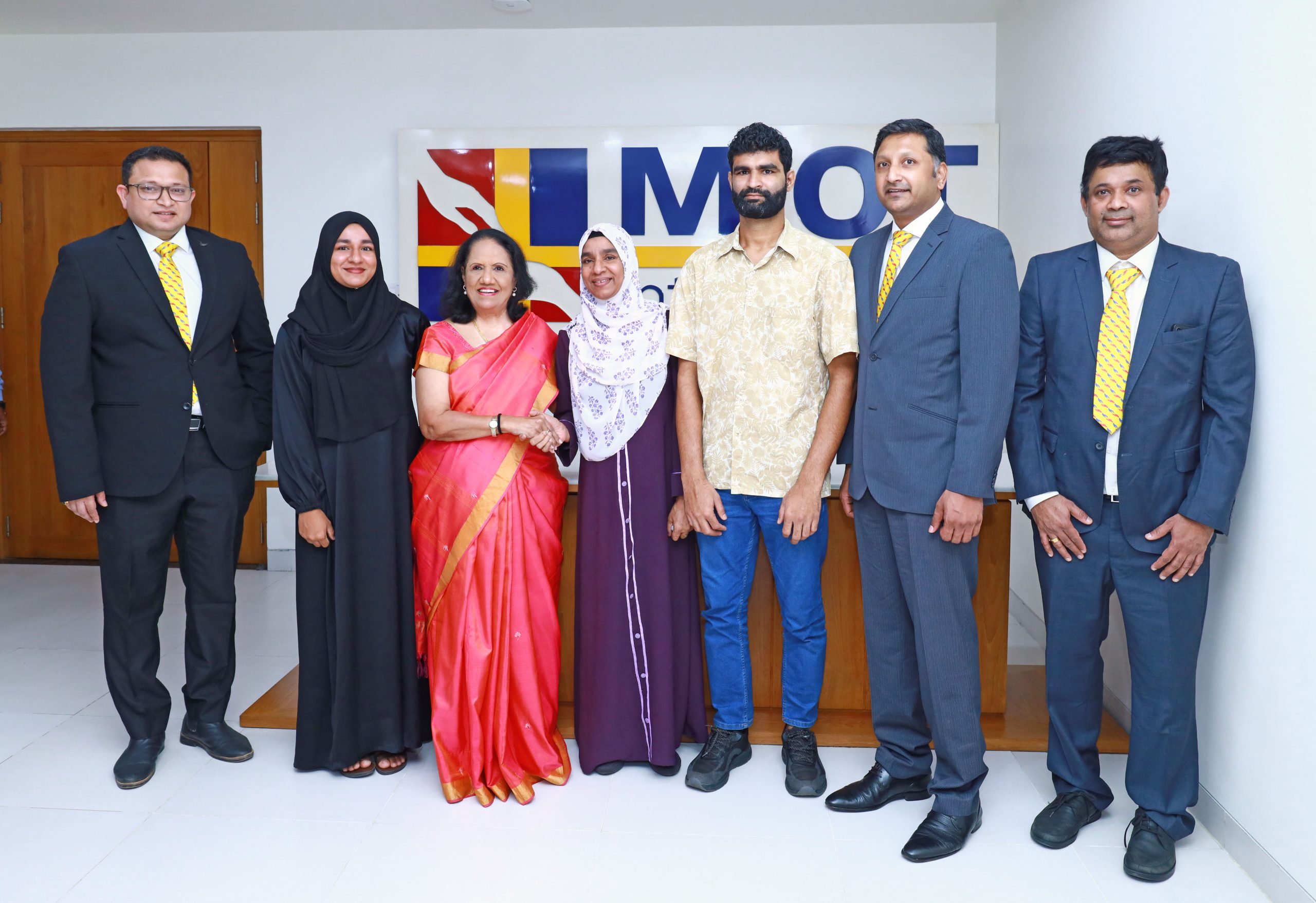Past events at MIOT
1st time in the World - Successful Liver Transplantation on a Patient with a Rare Blood Group (anti-Kidd Jk(b) antibody positive)
MIOT International has successfully performed a liver transplantation for the 1st time in the world, on a patient with anti-Kidd Jk(b) antibody positivity, a potentially dangerous blood-related immune condition. This surgery is an exceptionally rare scenario, similar to operating on someone with a Bombay O blood group.

A 55-year-old patient from the Maldives with a B-positive blood group anti-Kidd Jk(b) antibody positivity underwent a successful liver transplant, using a liver donated by her son with O-positive blood group.
Anti-Kidd Jk(b) antibody positivity can cause destruction of RBCs and even serious complications, resulting in fatality, if transfused with anti-Kidd Jk(b) antibody-negative blood. Further complicating the case, this antibody is exceptionally difficult to detect due to its low titers and transient nature. Though the presenting titre may be low, the antibody can cause considerable challenges to transplant outcome and survival during and after the transplant. In the face of such a predicament, MIOT’s specialists, with their expertise, identified the rare blood group as a part of their routine thorough pre-transplant evaluation. The identification of the condition by itself is a challenge requiring advanced technology and testing methods, on par with International standards, which is available only in a few hospitals in India.
Considering her condition, it was essential to perform the surgery with minimal blood loss. Despite her failing liver, MIOT’s experts managed the surgery with exceptional precision, transfusing only three units of blood. Using advanced technology, the coagulation was assessed and managed in real-time (ROTEM test). Additionally, the autologous cell-saver machine was kept ready, if required, to collect and reinfuse the patient’s own blood during surgery. Through a collaborative approach of Transfusion Medicine experts and Liver Transplant Specialists, the liver transplantation was successfully completed, saving the patient’s life without any Complications
55-year-old Patient with Chronic Liver Disease
The Maldivian patient with a B-positive blood group had liver disease and suffers from enlarged spleen, diabetes, thyroid issues, cholesterol, and heart disease. She was diagnosed with liver cirrhosis, which required urgent liver transplantation. Due to her chronic liver disease, the veins in the oesophagus were enlarged, leading to upper gastrointestinal bleeding. This resulted in life-threatening bleeding episodes, including vomiting blood and frequent nosebleeds. During this critical phase, she experienced brief memory loss, and doctors estimated her prognosis as grave, with only six months to live.
Desperate about the frequent nosebleeds, she visited MIOT’s medical camp in the Maldives to get immediate relief. MIOT’s gastroenterologist specialist reviewed her case and changed the medication, which stopped her nosebleeds and related symptoms.
She was then referred to MIOT International for liver transplantation, as her son, with O-positive, a universal donor blood group, was willing to donate his part of the liver.
Identification of anti-Kidd Jk(b) Antibody During Pre-operative Tests at MIOT International
During her evaluation at MIOT for liver transplantation, the patient was found to have an anti-Kidd Jk(b) antibody positivity. This is a rare blood group in the Asian population. The Kidd antigens are expressed only on the membrane of the RBCs and kidneys. Anti-Kidd Jk(b) antibody positivity is notoriously difficult to detect in routine screenings due to its low titers and transient nature. In addition, exposure of Anti-Kidd Jk(b) antibody antibody to its corresponding antigen can cause multiple complications, compromise the transplant, and potentially result in death.
MIOT’s Cutting-edge Technology Helped Identify anti-Kidd Jk(b) Antibody
When the patient’s blood was cross-matched for compatibility with the donor’s blood, haemolysis (cell breakdown) was observed. MIOT’s Transfusion Medicine experts used advanced medical technology and conducted specialised Immunohaematology tests to identify the presence of anti-Kidd Jk(b) antibody, averting a potentially life-threatening complication.
Challenges Due to anti-Kidd Jk(b) Antibody
Anti-Kidd Jk(b) antibody-positive blood group, if undetected and transfused with non-matching, anti-Kidd Jk(b) antibody-negative blood, could cause blood clotting and bleeding in small vessels throughout the body. Such a mismatch can lead to the destruction of RBCs and serious complications such as acute kidney injury, potentially resulting in fatality.
Additionally, the necessary amount of the patient’s blood was not available to perform the surgery, as this blood group is very rare.
How MIOT’s Experts Overcame the Challenges?
- By early identification, we have cross-matched 100 units of blood with the patient’s blood and procured 6 units of matching Jk(b)-negative red blood cells.
- It was essential to perform the surgery with minimal blood loss. MIOT’s experts, through their precise surgical technique, used only 3 units of blood during the procedure, instead of the 12-15 units typically required in a normal case.
- The coagulation was assessed and managed in real-time using a ROTEM test, ensuring and optimising coagulation with minimal use of cryoprecipitate during the surgery.
- Post-operation, close surveillance was carried out for RBC breakdown (haemolysis), which can lead to a condition called Passenger Lymphocyte Syndrome or other haemolysis-induced complications. This risk was mitigated through constant monitoring of blood parameters.
Successful Liver Transplantation
This complex case demanded seamless coordination between MIOT’s transfusion medicine specialists and liver transplant surgeons. Given the rarity of the patient’s blood condition, the transfusion experts played a pivotal role in planning and executing personalised blood management strategies. From pre-transplant cross-matching and antibody identification to intraoperative blood salvage and real-time coagulation monitoring, their expertise ensured safe transfusion practices throughout the procedure.
With MIOT’s multidisciplinary excellence, advanced medical technology, transfusion medicine experts, and liver transplant specialists, the liver transplant was successfully completed without complications, ultimately saving the patient’s life. This extraordinary case pushed the frontiers of transplant medicine and underscored the life-saving impact of collaboration, precision, and innovation.


